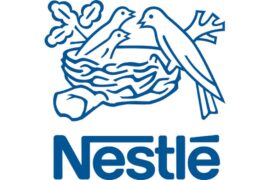 Pinnacle Foods Inc. is voluntarily recalling all “Best By” dates of Aunt Jemima Frozen Pancakes, Frozen Waffles and Frozen French Toast Slices distributed nationally in the USA, and one SKU into Mexico because they have the potential to be contaminated with Listeria monocytogenes.
Pinnacle Foods Inc. is voluntarily recalling all “Best By” dates of Aunt Jemima Frozen Pancakes, Frozen Waffles and Frozen French Toast Slices distributed nationally in the USA, and one SKU into Mexico because they have the potential to be contaminated with Listeria monocytogenes.
Distributors and retail and foodservice customers have been notified of the situation, and the affected products are being removed from store shelves. No illnesses related to consumption have been reported thus far.
The Parsippany, New Jersey-headquartered company initiated the recall of 17 retail products and two additional items on May 5 in coordination with the US Food and Drug Administration (FDA) after testing indicated the presence of the pathogenic bacteria in the manufacturing plant.
Listeria monocytogenes is an organism that can cause serious and sometimes fatal infections in young children, frail or elderly people, and others with weakened immune systems. Although healthy individuals may suffer only short-term symptoms such as high fever, severe headache, stiffness, nausea, abdominal pain and diarrhea, Listeria infection can cause miscarriages and stillbirths among pregnant women.
Ben & Jerry’s Recall
 Meanwhile, the FDA announced on May 4 that Unilever is recalling a limited number of boxes of Ben & Jerry’s Chocolate Fudge Brownie Pint Slices, which may inadvertently contain Vanilla Peanut Butter Cup Pint Slices. Although the ice cream bars were individually wrapped and identified as Vanilla Peanut Butter Cup Pint Slices, the ingredient peanut butter (containing the known allergen peanut) is undeclared on the outer product packaging. Persons who have an allergy or severe sensitivity to peanuts run the risk of a serious or life-threatening allergic reaction if they consume the product.
Meanwhile, the FDA announced on May 4 that Unilever is recalling a limited number of boxes of Ben & Jerry’s Chocolate Fudge Brownie Pint Slices, which may inadvertently contain Vanilla Peanut Butter Cup Pint Slices. Although the ice cream bars were individually wrapped and identified as Vanilla Peanut Butter Cup Pint Slices, the ingredient peanut butter (containing the known allergen peanut) is undeclared on the outer product packaging. Persons who have an allergy or severe sensitivity to peanuts run the risk of a serious or life-threatening allergic reaction if they consume the product.
The recalled item is sold in paperboard boxes containing three individually wrapped ice cream slices (9 fluid ounces) with UPC code of 076840657940, “Best By” date AUG 12 18, and lot number of LT2.
The product was manufactured in the United States and distributed to retail stores nationwide. No packs were shipped to export markets, nor was the product distributed to scoop shops.
The recall was initiated voluntarily after receiving one consumer complaint, where it was discovered that Vanilla Peanut Butter Cups Pint Slices were distributed in outer packaging that did identify the presence of peanut butter. Unilever has received no reports of illness associated with consumption of this product.
Beef Chile Colorado
 Elsewhere, the McKinney, Texas-based unit of Fall River, Massachusetts-headquartered Blount Fine Foods is recalling approximately 8,685 pounds of Beef Chile Colorado frozen meals due to misbranding and an undeclared allergen, the US Department of Agriculture’s Food Safety and Inspection Service (FSIS) reported on May 3. The products are mislabeled as Beef Chile Colorado, but the packaging actually contains cheese enchiladas with milk as an ingredient. Milk, a known allergen, is not declared on the label.
Elsewhere, the McKinney, Texas-based unit of Fall River, Massachusetts-headquartered Blount Fine Foods is recalling approximately 8,685 pounds of Beef Chile Colorado frozen meals due to misbranding and an undeclared allergen, the US Department of Agriculture’s Food Safety and Inspection Service (FSIS) reported on May 3. The products are mislabeled as Beef Chile Colorado, but the packaging actually contains cheese enchiladas with milk as an ingredient. Milk, a known allergen, is not declared on the label.
The SKUs subject to recall, shipped to distribution centers in Texas and Pennsylvania, are 10-ounce retail cartons of Saffron Road Beef Chile Colorado with Mesquite Black Beans & Garlic Rice. Produced on November 23, 2016, they carry a 05/23/18 “Best By” date.
There have been no confirmed cases of adverse reactions due to consumption of these products. Persons who may have the packs in home freezers should not consume eat the contents, but rather return the product to the place of purchase to obtain a refund.
Tainted Tuna from Indonesia
Also on May 3, the Hawaii State Department of Health (DOH) announced that imported frozen raw tuna distributed in the form of ahi cubes by Tropic Fish Hawaii on the island Oahu tested positive for the Hepatitis A virus. The product, sourced from Indonesia, was used to prepare poke (raw fish salad appetizer) sold between April 27 and May 1 by supermarket outlets and foodservice establishments on Oahu.
“Times Supermarket and Tropic Fish notified the department as soon as they learned of the test results on the imported fish,” said Peter Oshiro, chief of the DOH Food Safety Program. “All of the product is being traced, collected and held by the distributor. Fortunately, in this case, Tropic Fish Hawaii kept excellent records and has been contacting all retailers and pulling the product quickly.”
“Because it generally takes two weeks for those infected to develop symptoms of Hepatitis A, vaccination or immune globulin can still provide some protection against the disease for those who may have been exposed in the last week,” said Dr. Sarah Park, state epidemiologist. “We remind those who received their first dose of Hepatitis A vaccination during an earlier outbreak on Oahu to obtain their second dose for long term immunity.”
Symptoms of Hepatitis A infection include fever, fatigue, loss of appetite, abdominal discomfort, dark urine, diarrhea, and yellow skin and eyes. Individuals, including foodservice employees, exhibiting symptoms of hepatitis A should stay home and contact their healthcare provider.





